- Depi nan Ginen bon Nèg ap ede Nèg!
- jafrikayiti@gmail.com
A Single Maat Confession for Haitians

Charles Aznavour to cancel Haiti concert ?
December 29, 2017
Many cousins of Donald Trump act like him but speak differently
January 14, 2018A Single Maat Confession for Haitians
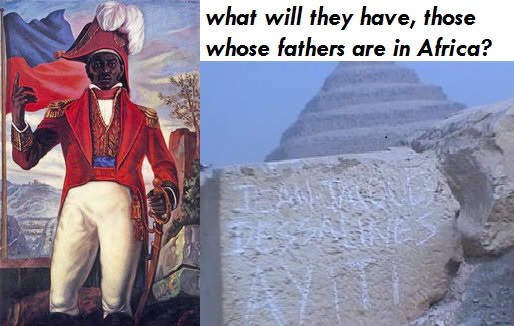
Today, December 30, 2017, as we enter “Nia”, the 5th day of Kwanzaa, I invite you to follow me on a special journey that will take us from the ancient Nile in Africa to the Artibonite river in modern-day Haiti.
Nia is Kiswahili for the English word purpose. The founders of Kwanzaa define the principle of Nia as follows: “to make our collective vocation, the building and developing of our community in order to restore our people to their traditional greatness”.
In Kemet, the ancient Africans had established a set of high moral rules to govern their lives. These are also known as “The confessions of Maat”. Although, one can find various versions of that list of 42 statements, most researchers agree the confessions of Maat constitute a cornerstone of the Ancient Egyptian belief system, upon which Judaism and Christianity borrowed extensively.
In the image below, the deceased is accompanied to face final judgement in front of Almighty God “Osiris”, the Great Black. As one faces Osiris to give account, it is one’s greatest hope that one’s heart will be found to be light as a feather and that little, if anything, will be found to condemn one’s behavior among the living on earth. The deceased recites the 42 Maat confessions: “I have not committed sin, I have not committed robbery with violence, I have not stolen, I have not slain men and women…I have not polluted the water…”
The concept of “Nia” or “purpose” for our earthly lives is a fundamental need of our existence. This is why every society has a version of the Maat confessions which serves as its anchor.
Now, let us make a great geographical leap from the African continent to a small island in the Caribbean sea once named Ayiti (Haiti) by its native inhabitants, the Tainos.
On january 1, 1804, Jean Jacques Dessalines, the leader of formerly kidnapped, displaced and enslaved Africans who defeated the armies of Spain, Great Britain and France, to liberate themselves and establish the abolitionist Republic of Hayti warned his fellow countrymen, in these words: “on this solemn day I have brought together those courageous soldiers who, as liberty lay dying, spilled their blood to save it; these generals who have guided your efforts against tyranny have not yet done enough for your happiness; the French name still haunts our land. Everything revives the memories of the cruelties by this barbarous people: our laws, our habits, our towns, everything still carries the stamp of the French. Indeed! There are still French in our island, and you believe yourself free and independent?“.
It was evident to Dessalines that the new nation he had just established had a special purpose in the Americas. The responsibility of each son or daughter of Haiti is to embrace this “nia” and work towards its realization and perpetuation on earth. Later, that same year, noting the selfishness of the mulattoes and of some Blacks who were freed earlier, who wanted to inherit the lands left by the European terrorists he had chased out to sea, Dessalines declared: “Why should the sons of the white colonists have property and those whose fathers are in Africa have none?”.
That single statement uttered by Haiti’s founding father is the key to understand the ongoing struggle being waged on the island for the past 213 years. The promises of the Haitian revolution had not yet been fulfilled when the white supremacist world conspired with traitors to assassinate Dessalines on October 17, 1806. From then on, the justice agenda which birthed the nation, was completely abandoned.
As a former Christian who now claims to be completely healed and freed from this superstition, I can no longer relate to the myths of final judgement by some old white male deity who will cast some people to burn in the eternal fires of “hell” and reward some others with eternity in a magical place called “heaven” (a place where they presumably will rejoice listening to bad elevator music played by white angels ?).
That said, as a humanist, I can clearly relate to the need we all have to establish “nia”, a sense of purpose for our lives.
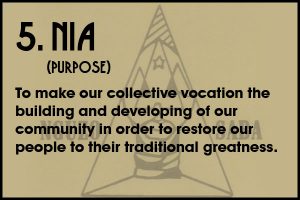 In October 2010, U.N troops that were illegally deployed to Haiti 6 years prior to consolidate a U.S.-backed coup d’État, had contaminated the Artibonite river with improperly disposed feces of cholera-infested soldiers. This act of criminal negligence which the U.N. refuses to remedy constitute a gross violation of basic human rights. It is also a violation of the 34th confession of Maat: “I have not polluted the water”.
In October 2010, U.N troops that were illegally deployed to Haiti 6 years prior to consolidate a U.S.-backed coup d’État, had contaminated the Artibonite river with improperly disposed feces of cholera-infested soldiers. This act of criminal negligence which the U.N. refuses to remedy constitute a gross violation of basic human rights. It is also a violation of the 34th confession of Maat: “I have not polluted the water”.
Having polluted the water, the United Nations caused illness to over 1 million Haitians and painful death to over 30,000 – all of whom came from the impoverished and black-skin majority; i.e.: those whose fathers were in Africa, on January 1, 1804. Indeed, cholera killed exclusively within this population of the most impoverished because they are the ones who lack access to a most basic resource: clean drinking water.
Many Haitians and foreigners have risen their voices to demand reparations for the victims of U.N. cholera in Haiti. This has been to no avail, thus far.
In December 2017, whether it pertains to inequitable sharing of Haitian lands or reparations due to victims of U.N. cholera, right has not been done to the sons and daughters of Papa Dessalines.
Thus, the single Maat confession I consider essential for all Haitians is to face Dessalines on judgement day and say confidently: “Father, I have done everything in my power to ensure the resources of Ayiti are shared equitably among all of its children, particularly those whose fathers were in Africa, on January 1, 1804”
Hoping we all live very fruitful days in 2018, I bid you perfect “Nia” and a very happy Kwanzaa!

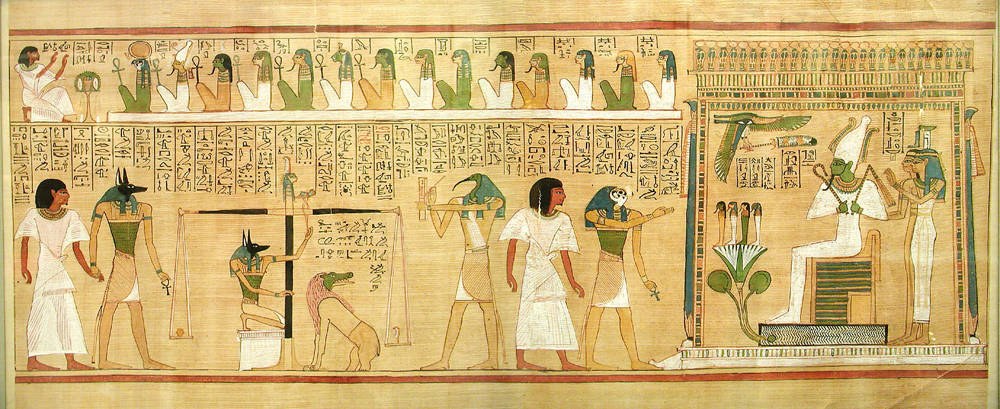
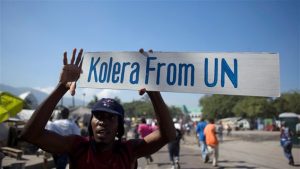

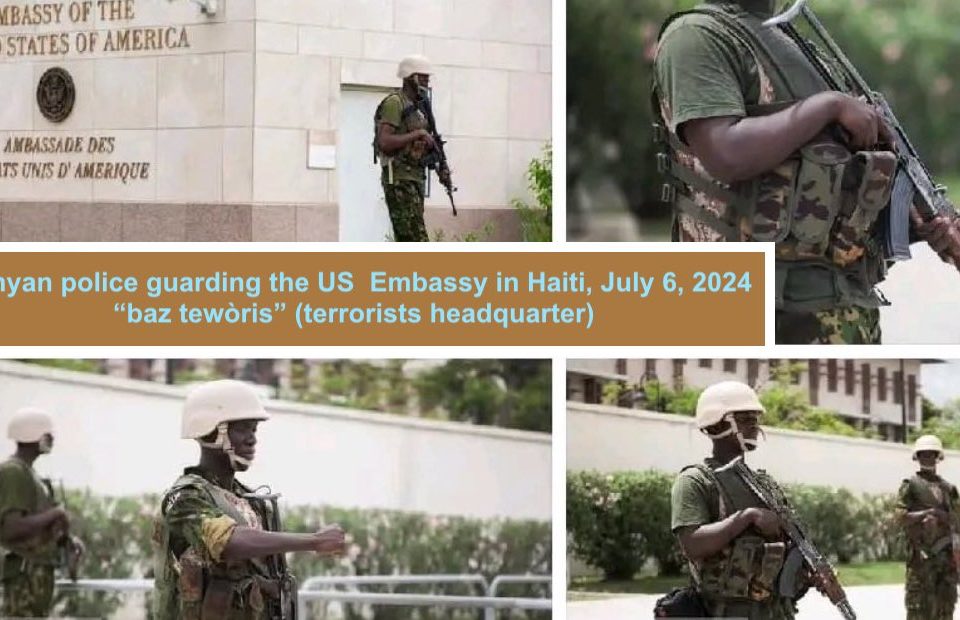

1 Comment
I love your well written articles